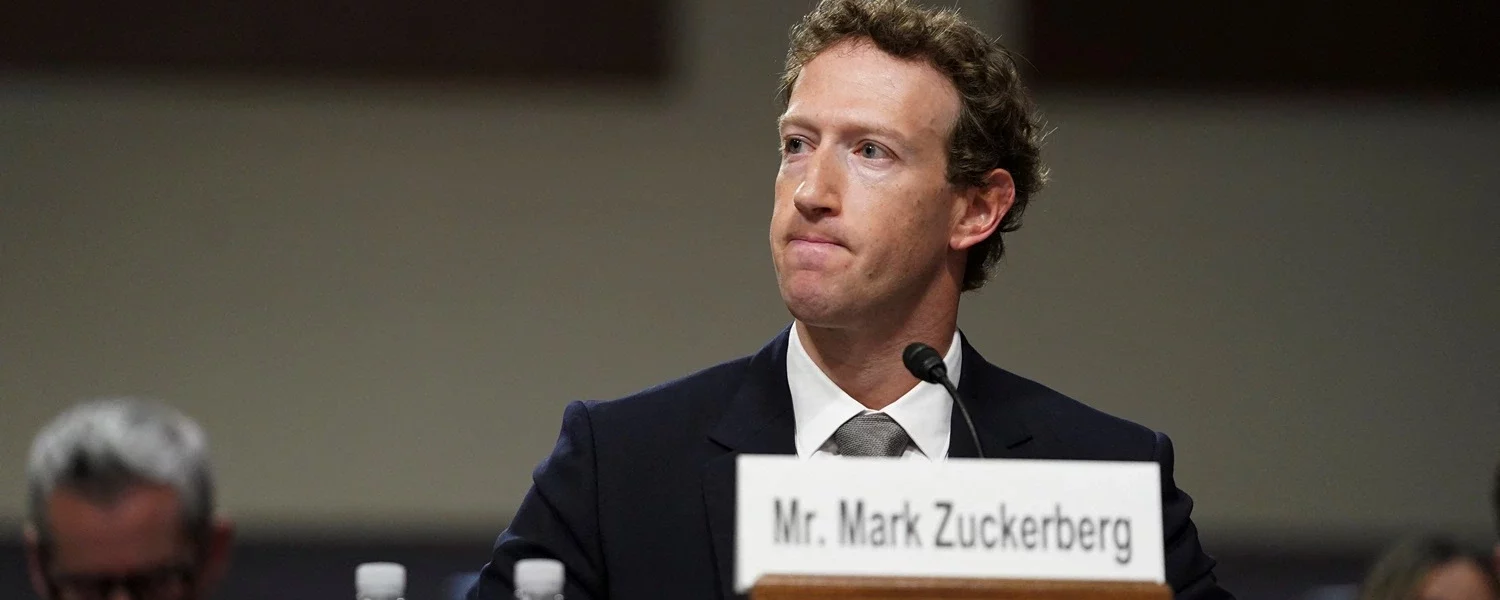The accusations against Mark Zuckerberg and Meta, formerly known as Facebook, have sparked a firestorm of controversy and public outrage. The whistleblower scandal brought to light the harmful impact of the platform’s algorithms and policies, which have contributed to the spread of misinformation and real-world violence. Critics argue that Mark Zuckerberg has “blood on his hands” for his role in the negative consequences of Facebook’s actions.
The impact of these allegations cannot be understated. Social media platforms have become powerful tools for communication and information sharing, but they also have the potential to amplify harmful content and incite violence. The spread of misinformation, hate speech, and extremist ideologies has led to real-world harm, including acts of terrorism and violence against marginalized communities.

Page Contents
- 1 Mark Zuckerberg’s response and apology
- 2 Understanding the role of social media platforms in spreading harmful content
- 3 Examining the responsibility of tech companies in moderating content
- 4 The importance of ethical guidelines and regulations for social media platforms
- 5 Examples of previous controversies involving social media platforms
- 6 The potential consequences for Mark Zuckerberg and Meta
- 7 Calls for greater accountability in the tech industry
- 8 Reflections on the future of social media platforms
- 9 Author
Mark Zuckerberg’s response and apology
In the face of mounting criticism and public outcry, situs toto Mark Zuckerberg issued a public apology to the families affected by the harm caused by Facebook. He acknowledged the need for Meta, the new parent company of Facebook, to make significant changes to address these issues effectively. Mark Zuckerberg expressed remorse for the negative consequences of the platform’s algorithms and policies and vowed to take necessary steps to prevent further harm.
Mark Zuckerberg’s apology is a step in the right direction, but many are skeptical about whether it will be enough to restore trust in Meta and its leadership. The public is demanding concrete actions and accountability from the social media giant, rather than just words. The onus is now on Meta to follow through on its promises and implement meaningful changes to ensure the platform’s safety and integrity.
Social media platforms like Facebook play a significant role in shaping public discourse and disseminating information. The algorithms used by these platforms prioritize engagement and user interaction, often resulting in the amplification of sensational and controversial content. This, in turn, contributes to the spread of harmful information, including misinformation, hate speech, and extremist ideologies.
The viral nature of social media allows harmful content to reach a wide audience within a short period. The algorithms are designed to show users content that aligns with their interests and beliefs, creating echo chambers that reinforce existing biases and beliefs. This can lead to the radicalization of individuals and the formation of online communities that promote harmful ideologies.
Examining the responsibility of tech companies in moderating content
Tech companies, including social media platforms, have a crucial responsibility to moderate and regulate the content shared on their platforms. While they strive to uphold principles of free speech and open communication, they must also balance this with the need to prevent the spread of harmful content. However, achieving this balance is challenging, and mistakes can and do happen.
The task of content moderation is complex and resource-intensive. It requires a combination of human moderators and AI-powered algorithms to identify and remove harmful content promptly. However, the efficacy of these systems has been called into question, as they often struggle to distinguish between harmful and legitimate content. This has led to instances of content being wrongfully flagged or left unchecked, contributing to the spread of misinformation and hate speech.
The controversy surrounding togel online Mark Zuckerberg and Meta highlights the urgent need for ethical guidelines and regulations for social media platforms. Currently, there is a lack of comprehensive legislation governing the responsibilities and obligations of tech companies in moderating content and protecting user safety. This regulatory gap leaves room for platforms to operate with limited accountability.
Ethical guidelines and regulations would provide a framework for social media platforms to operate responsibly. They would define clear standards for content moderation, ensuring that harmful content is swiftly identified and removed. Additionally, guidelines could address issues such as data privacy, algorithmic transparency, and the prevention of online harassment and abuse.
The allegations against Mark Zuckerberg and Meta are not the first instances of social media platforms facing scrutiny for their impact on society. Over the years, several controversies have highlighted the need for greater accountability in the tech industry.
One notable example is the Cambridge Analytica scandal, which exposed how Facebook user data was harvested without consent and used for political profiling and influencing elections. This revelation sparked widespread concern about the misuse of personal information and the unethical practices of social media platforms.
Another significant controversy involved the role of social media in facilitating the spread of extremist ideologies. Platforms like Twitter and YouTube have faced criticism for allowing hate speech and terrorist propaganda to flourish on their sites, leading to real-world violence and radicalization.
The potential consequences for Mark Zuckerberg and Meta
The accusations of having “blood on his hands” have serious implications for Mark Zuckerberg and Meta as a whole. The public’s trust in the platform and its leadership has been severely damaged, and it will take significant effort to regain that trust.
The fallout from this scandal could have legal and financial consequences for Meta. Governments and regulatory bodies are scrutinizing the company’s practices, and there is a possibility of fines and stricter regulations being imposed. Additionally, there may be a decline in user engagement and advertiser confidence, impacting Meta’s revenue and market value.
Furthermore, the accusations against Mark Zuckerberg and Meta have tarnished their reputation in the eyes of the public. The company’s ability to attract and retain top talent may be compromised, and users may migrate to alternative platforms that prioritize user safety and ethical practices.

Calls for greater accountability in the tech industry
The controversy surrounding Mark Zuckerberg and Meta has sparked renewed calls for greater accountability in the tech industry. Many argue that self-regulation is not enough and that external oversight and regulation are necessary to ensure ethical practices and protect user safety.
There is a growing consensus that tech companies should be held responsible for the content shared on their platforms. This includes the development of robust content moderation systems, transparency in algorithmic decision-making, and cooperation with external organizations and experts to address the challenges posed by harmful content.
Additionally, there are calls for greater transparency in data collection and usage, as well as stricter privacy protections. Users should have more control over their personal information and be able to make informed choices about the data they share with social media platforms.
The allegations against Mark Zuckerberg and Meta have ignited a critical debate about the future of social media platforms and their impact on society. The whistleblower scandal has exposed the potential dangers of unchecked algorithms and policies, which can contribute to the spread of harmful content and real-world violence.
Moving forward, it is crucial for social media platforms to prioritize user safety, ethical practices, and transparency. Greater accountability, both within the industry and through external regulation, is necessary to ensure that tech companies act responsibly and protect the public interest.
As users and consumers, we also have a role to play in shaping the future of social media. By demanding accountability, supporting platforms that prioritize user safety, and being mindful of the information we consume and share, we can contribute to a healthier and more responsible online ecosystem.
The allegations against Mark Zuckerberg and Meta should serve as a wake-up call for the tech industry and society as a whole. The time for change is now, and it is up to all stakeholders to work together to build a safer and more ethical future for social media platforms. Only then can we restore trust and ensure that these powerful tools are used for the betterment of society.
As we navigate the complexities surrounding Mark Zuckerberg and Meta’s pivotal moment, it’s clear that the implications extend far beyond the confines of a single corporation, touching on broader issues of responsibility, transparency, and ethics in the digital age. If you found this article insightful and are keen on exploring more about how technology shapes our world, we invite you to read our article about the HUAWEI MatePad Pro. Delve into our analysis to understand how Huawei is pushing the boundaries of what’s possible in the realm of tablets, offering a glimpse into the future of mobile computing.









